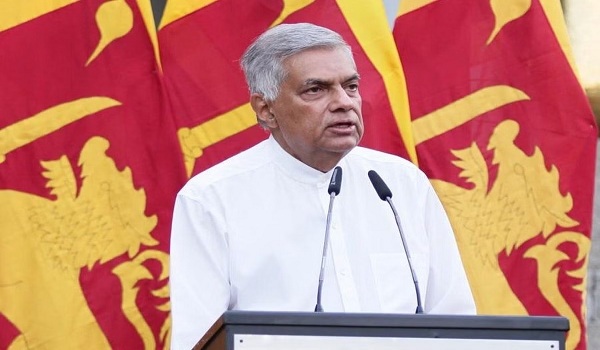Tamil National Alliance (TNA), the largest parliamentary grouping of Tamil parties in Sri Lanka has rejected the Sri Lankan President’s offer to implement the 13th Amendment of the Sri Lankan Constitution without police powers.This rejection by the TNA assumes significance before the President’s scheduled visit to India, as India has consistently emphasized the “full implementation” of this legislation, which is vital for addressing the historic demand of Sri Lankan Tamils for self-determination.
The 13th Amendment was enacted after the Indo-Lanka Accord of 1987, and it remains the only legislative guarantee of power devolution to the provinces.Indo-Lanka Accord 1987 was signed by the then Prime Minister Rajiv Gandhi and President J.R. Jayawardene, to resolve Sri Lanka’s ethnic conflict that had aggravated into a full-fledged civil war, between the armed forces and the Liberation Tigers of Tamil Eelam, which led the struggle for Tamils’ self-determination and sought a separate state.The 13th Amendment, which led to the creation of Provincial Councils, assured a power sharing arrangement to enable all nine provinces in the country, including Sinhala majority areas, to self-govern.Subjects such as education, health, agriculture, housing, land and police are devolved to the provincial administrations, but because of restrictions on financial powers and overriding powers given to the President, the provincial administrations have not made much headway.However, successive governments in Sri Lanka have refused to grant land and police powers to the provinces, leading to unresolved issues since the civil war ended 14 years ago.
President’s Proposal and TNA’s Response
- The Sri Lankan President presented a comprehensive dossier to Tamil political parties, outlining plans for truth-seeking, reconciliation, accountability, development, and power devolution.
- The proposal included implementing the 13th Amendment, except for police powers, and empowering provincial councils through various Bills.
- However, the TNA rejected the proposal, calling it a “hollow promise,” citing a lack of political will to genuinely devolve power, as provincial councils have been defuncting for five years without elections.
- The Tamil National People’s Front and civil society leaders expressed concerns to the Indian Prime Minister, urging a federal solution due to limitations of the 13th Amendment under a unitary constitution.
India’s Relations with Sri Lanka
- India and Sri Lanka are two South Asian nations situated in the Indian Ocean region. Geographically, Sri Lanka is located just off the southern coast of India, separated by the Palk Strait.
- This proximity has played a significant role in shaping the relationship between the two countries.
- The Indian Ocean is a strategically important waterway for trade and military operations, and Sri Lanka’s location at the crossroads of major shipping lanes makes it a critical point of control for India.

